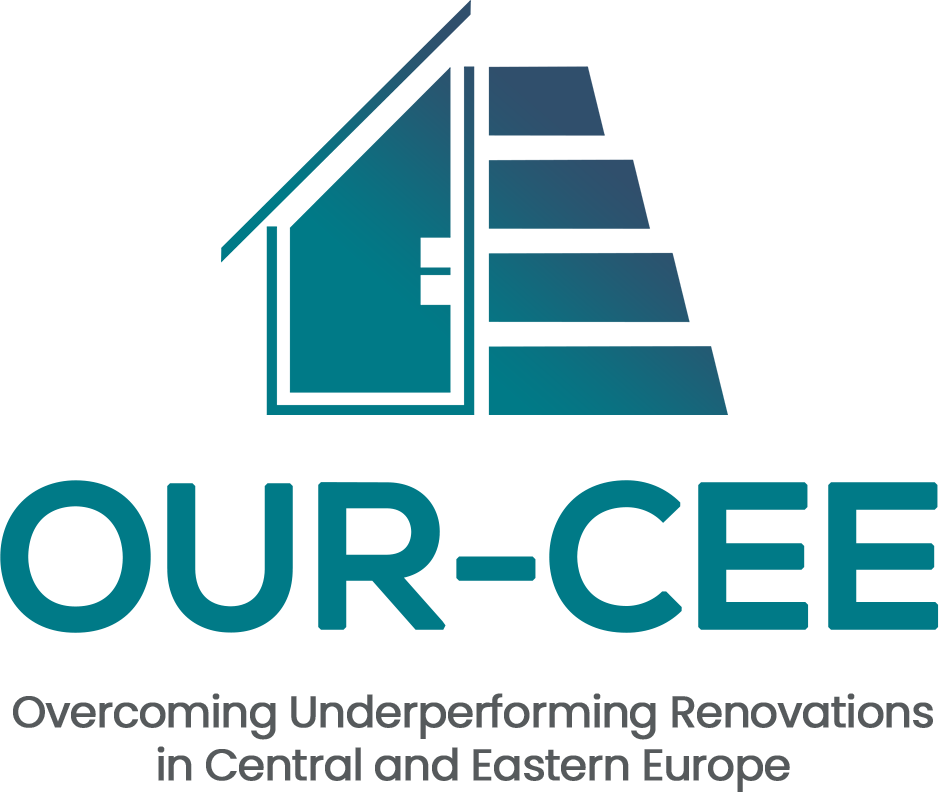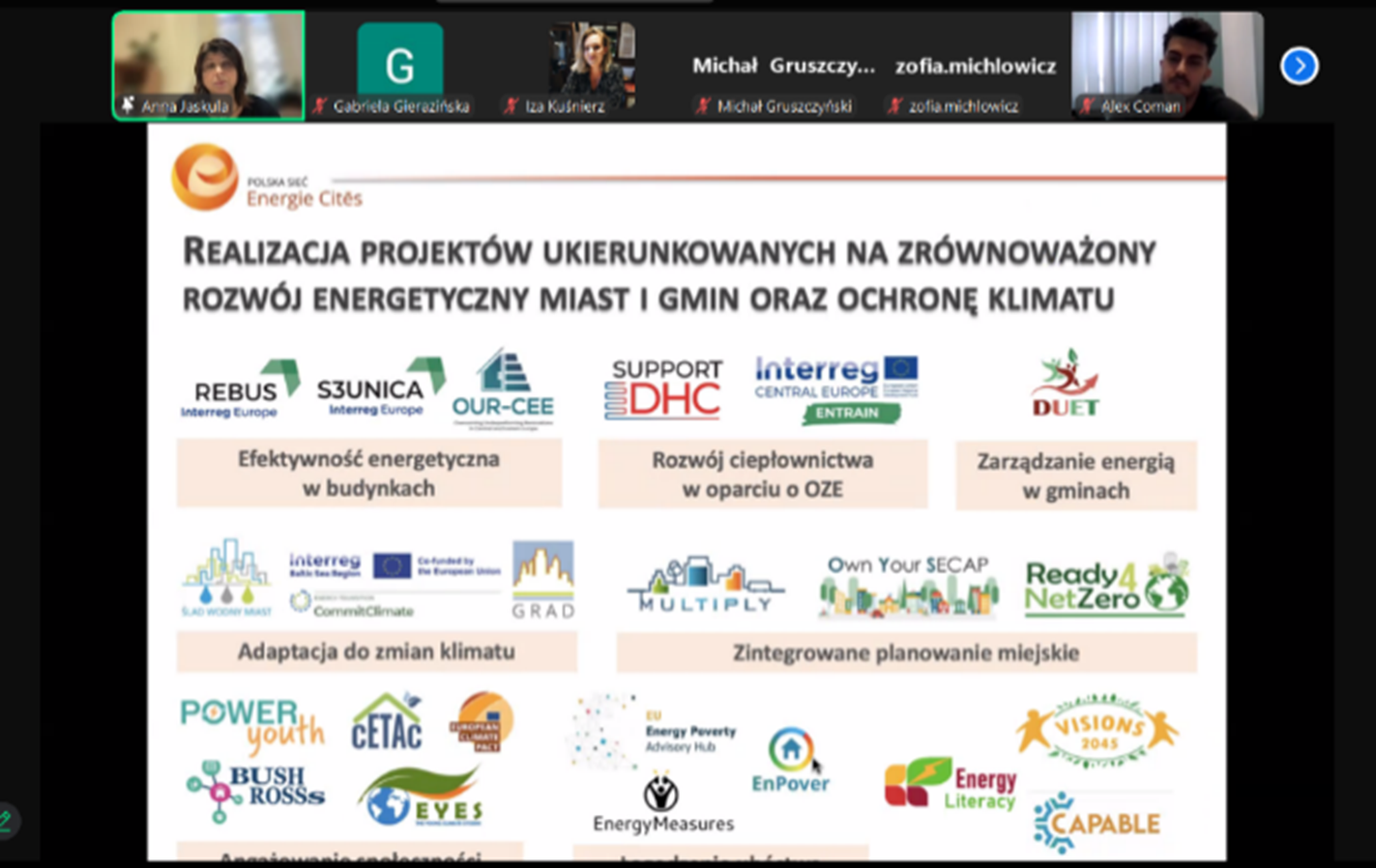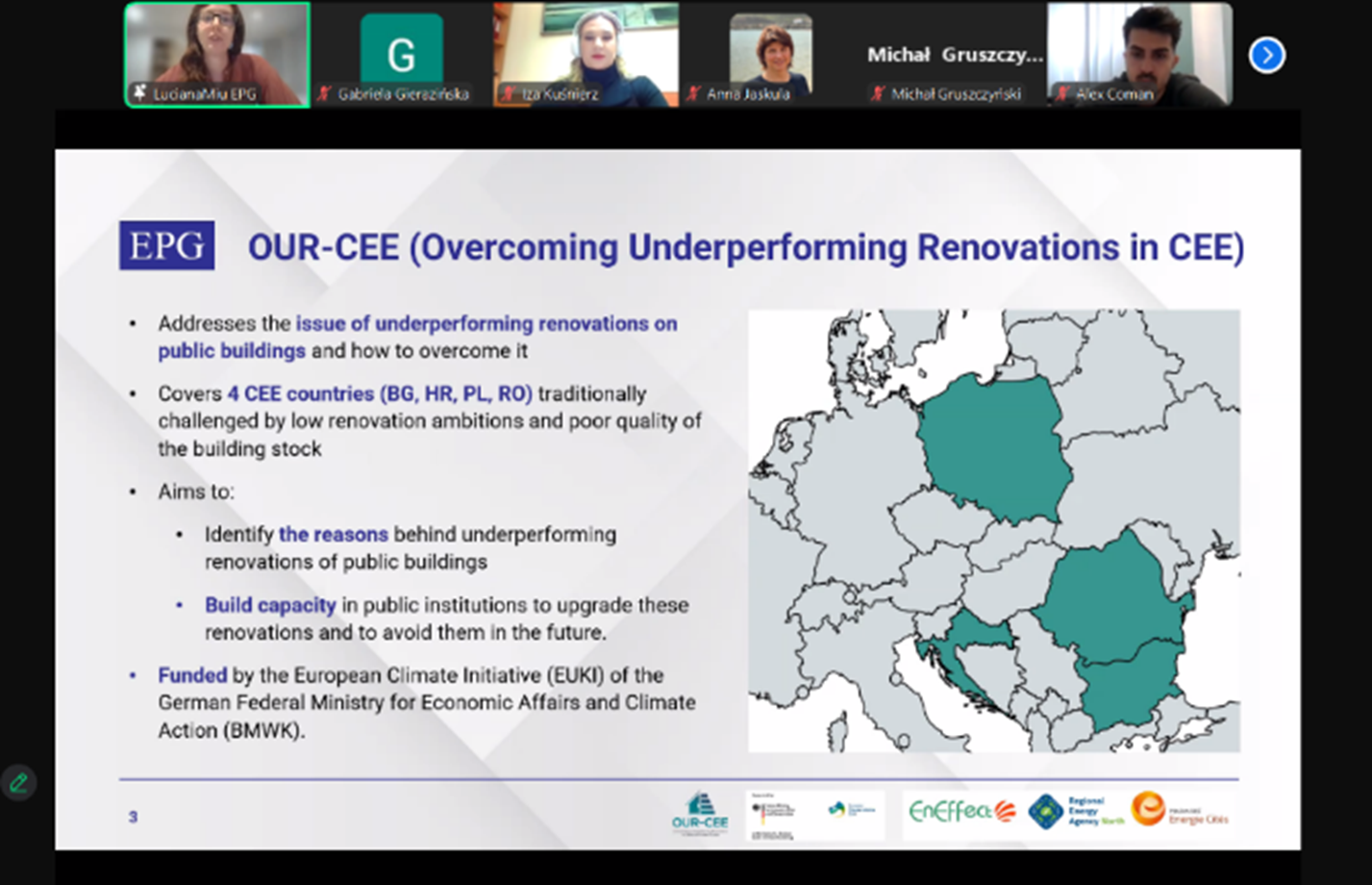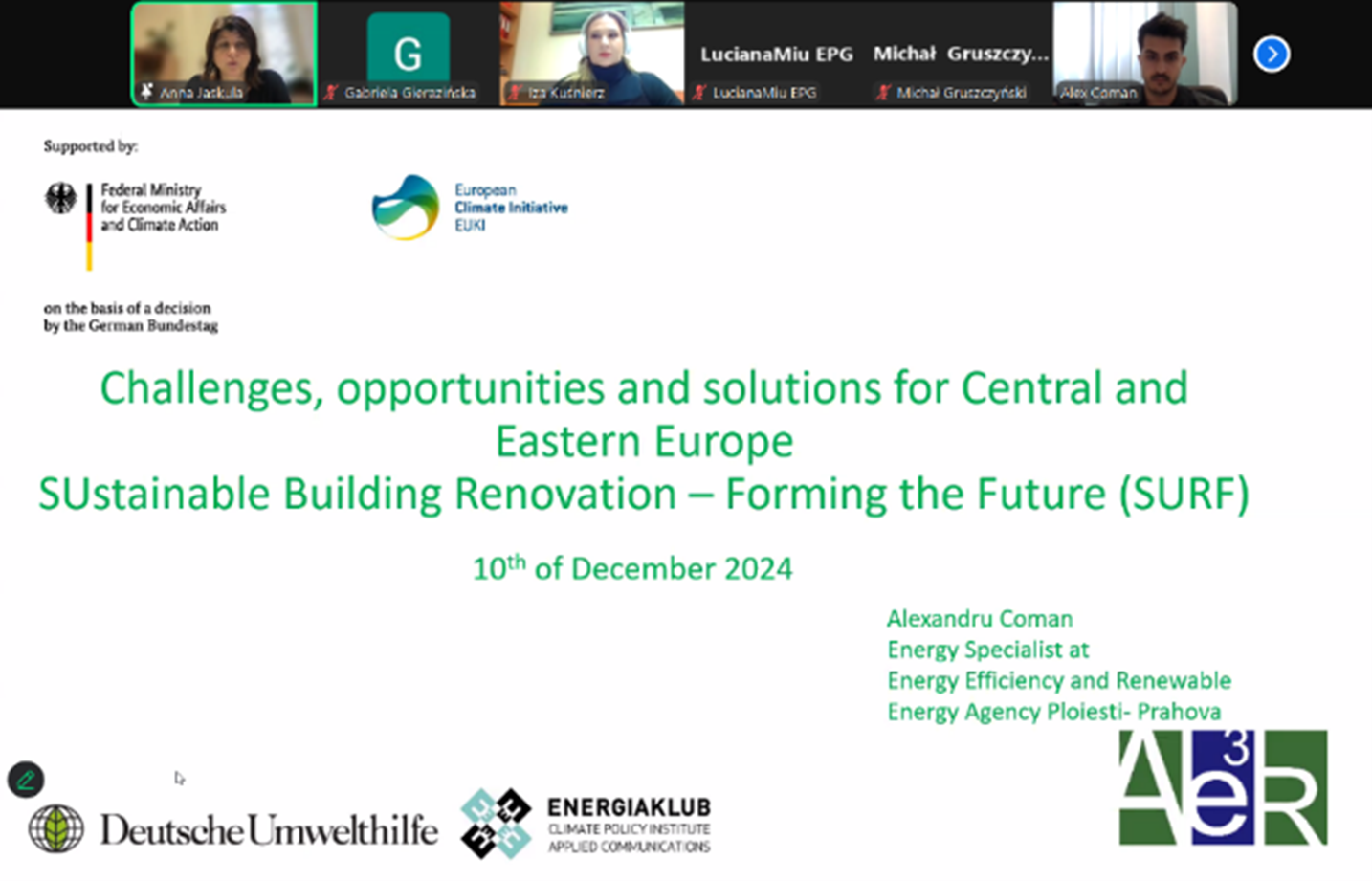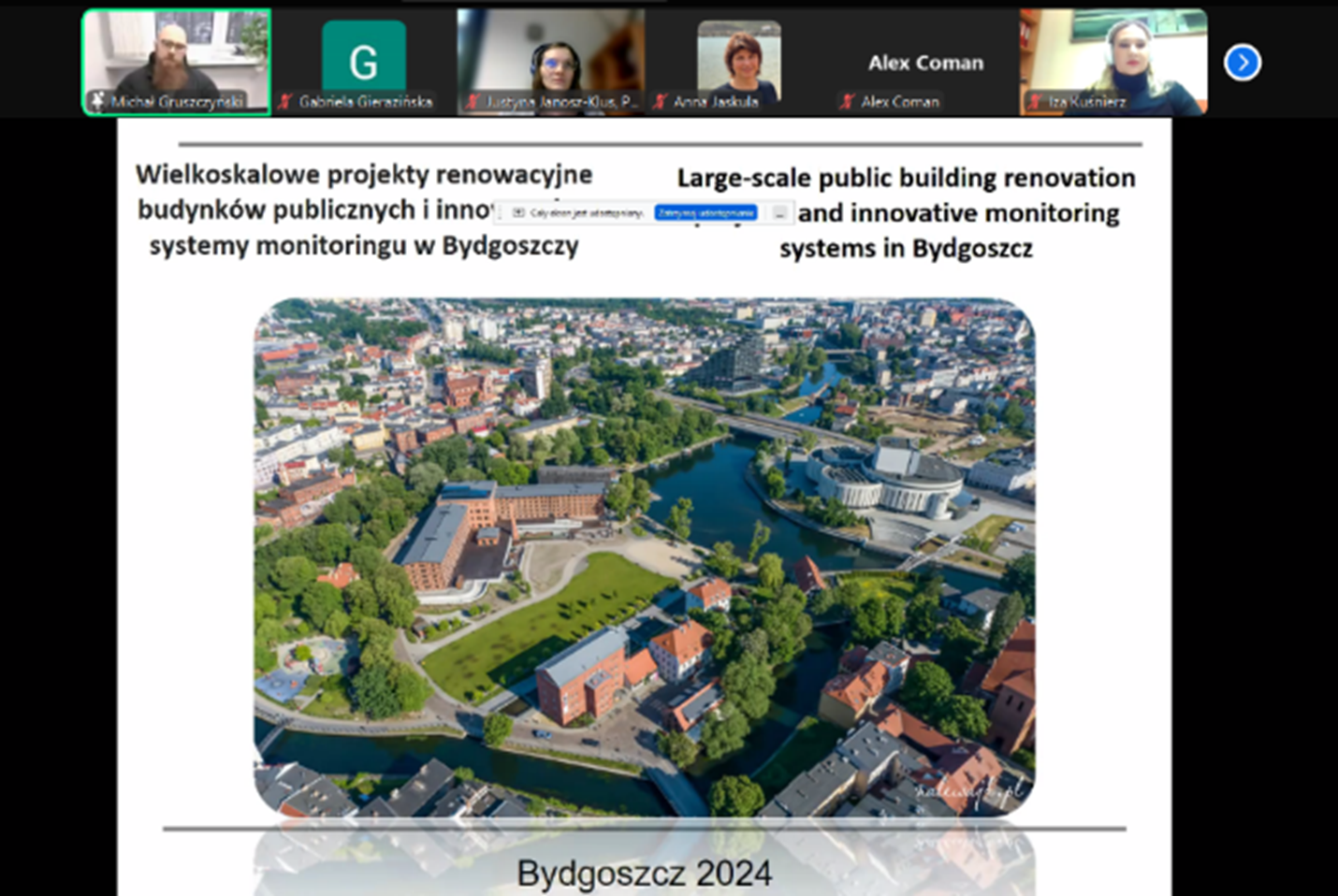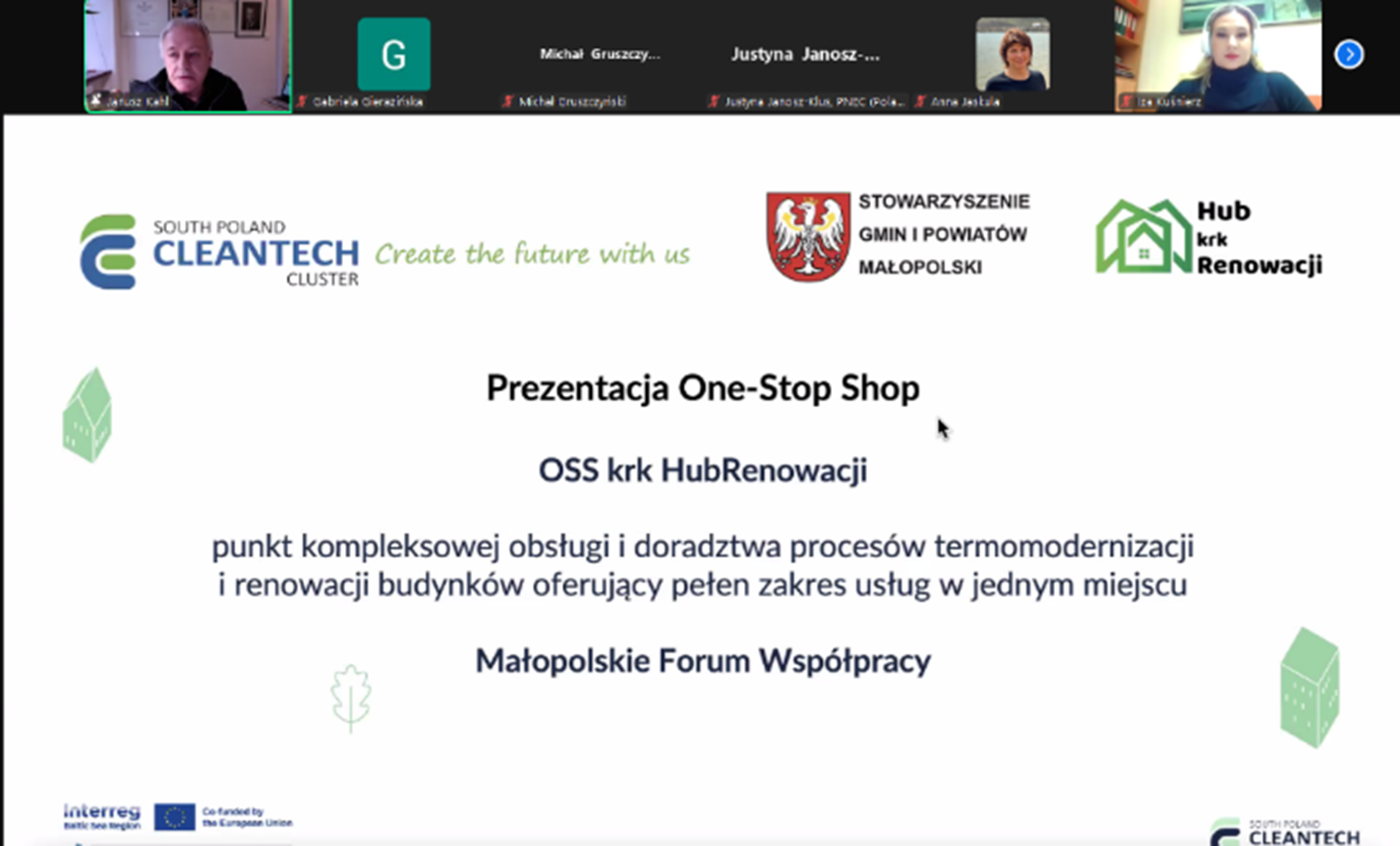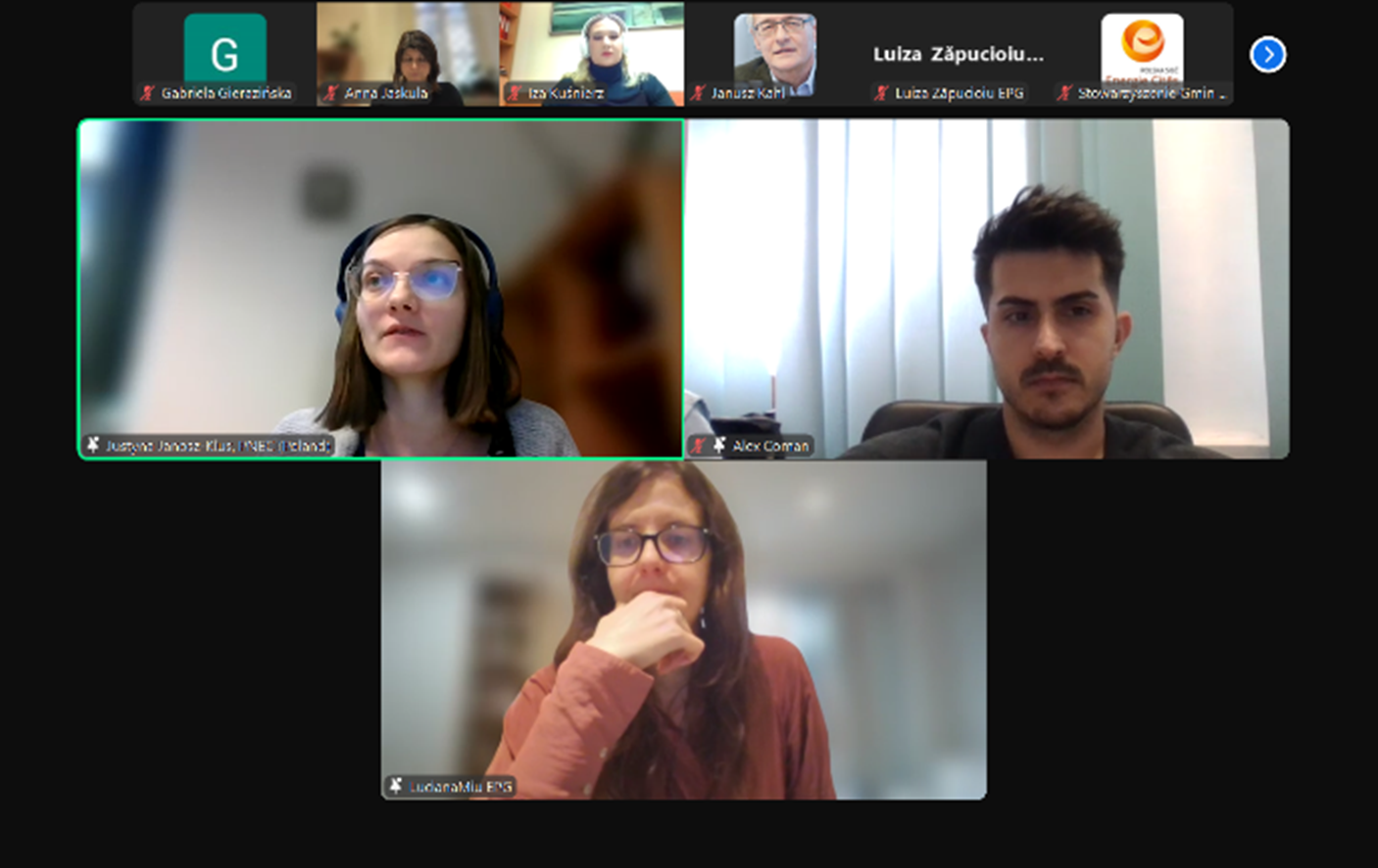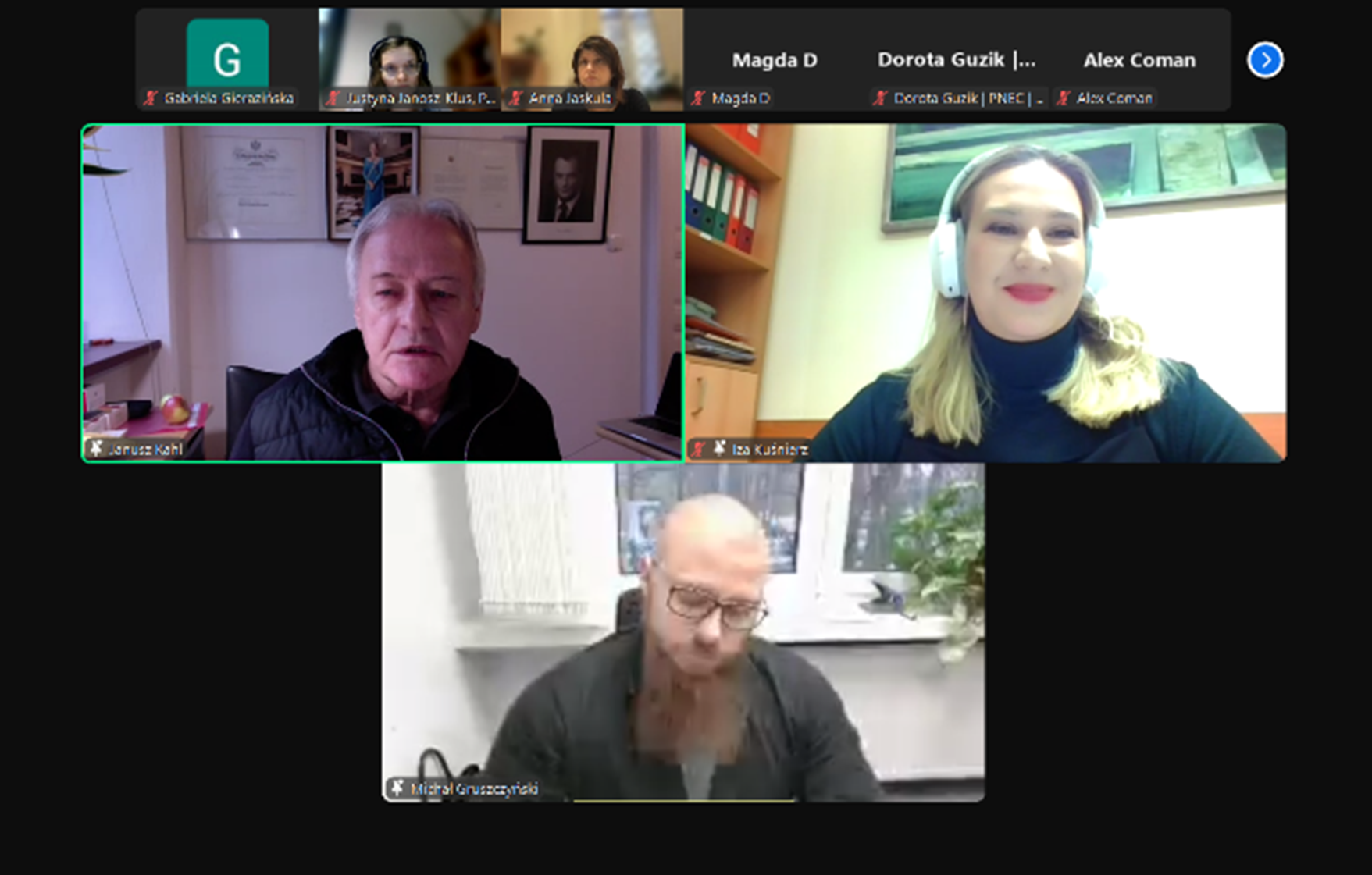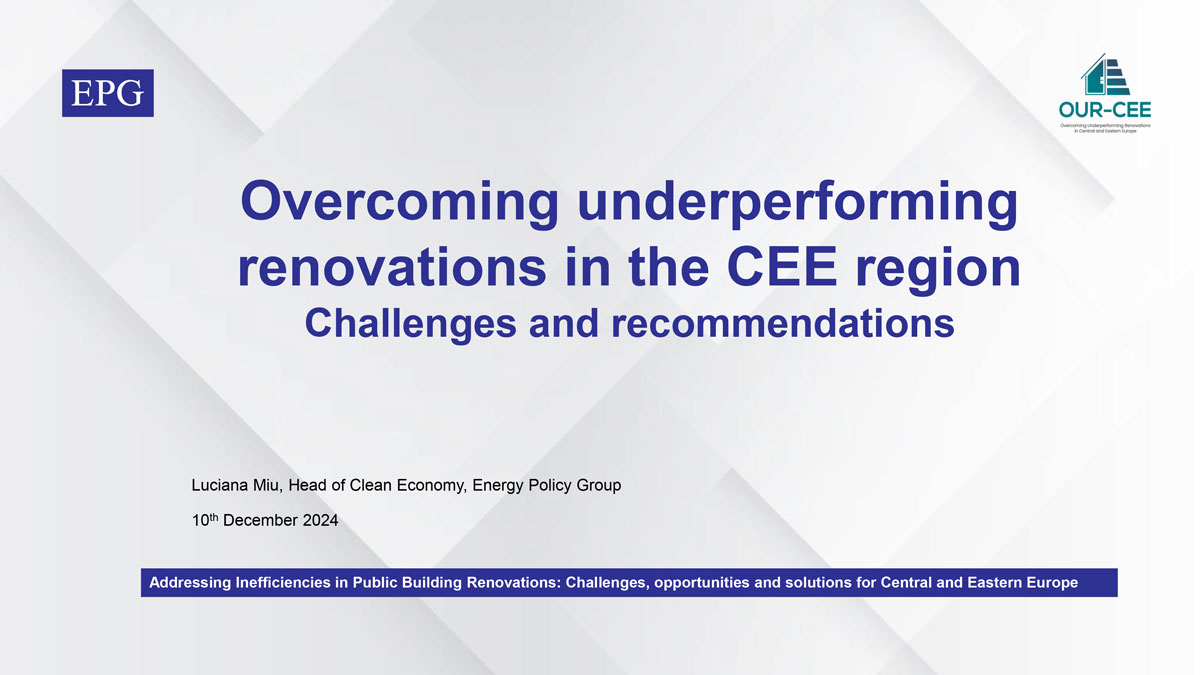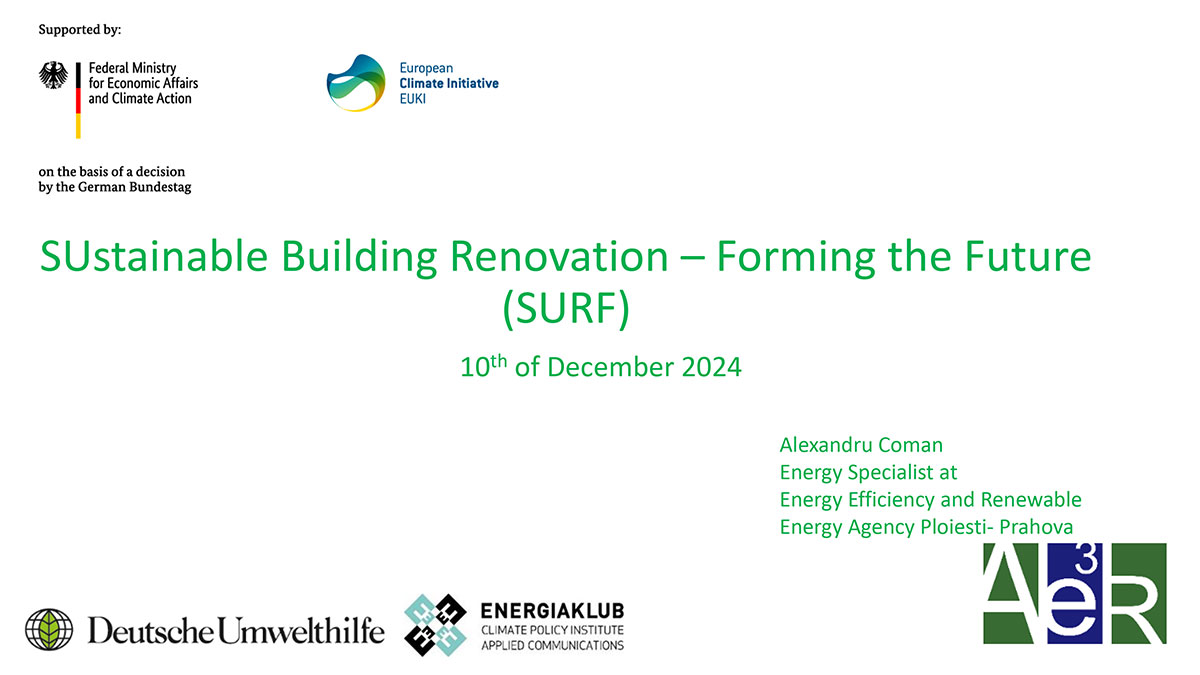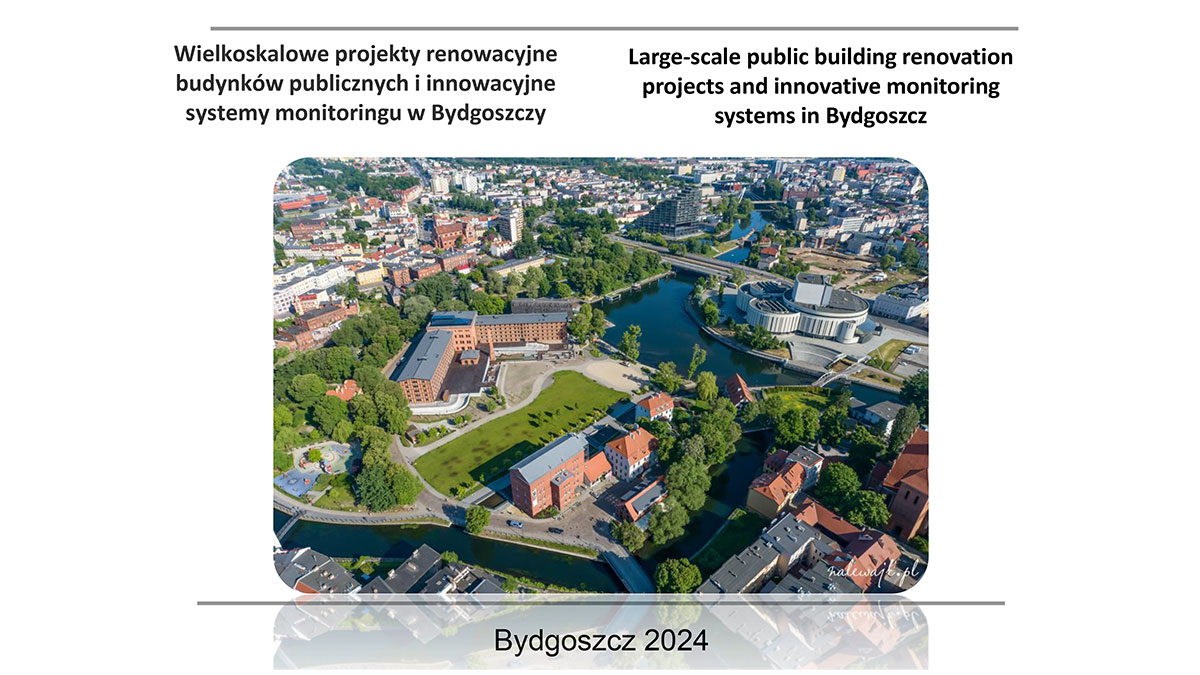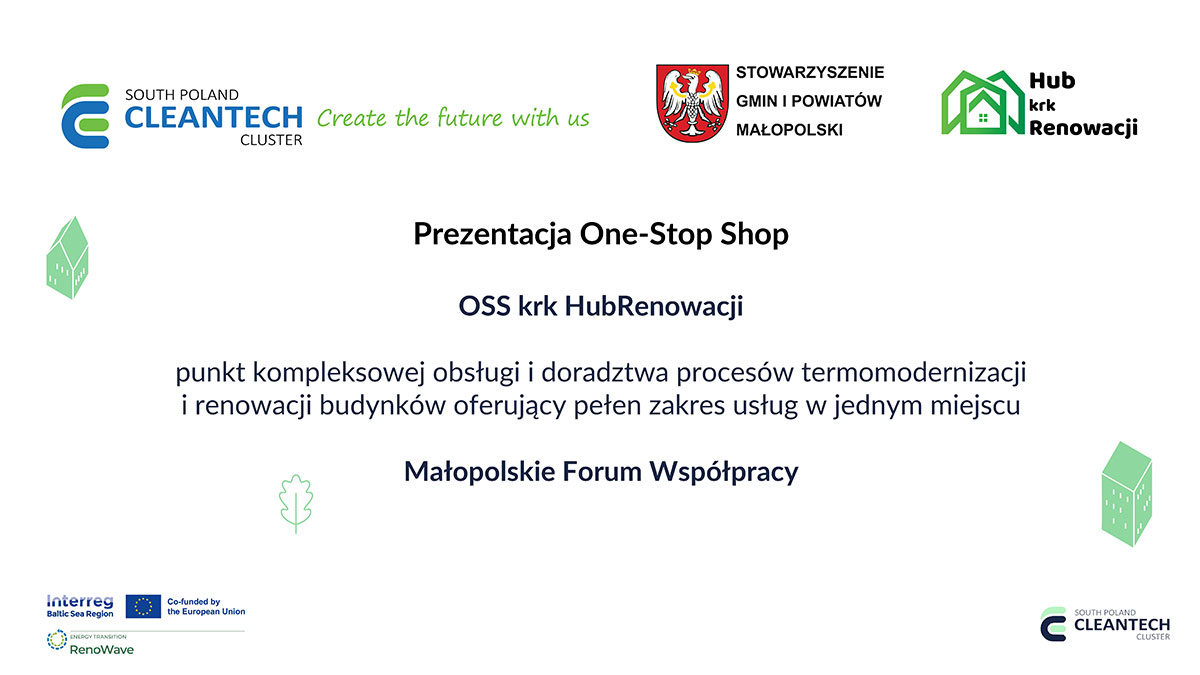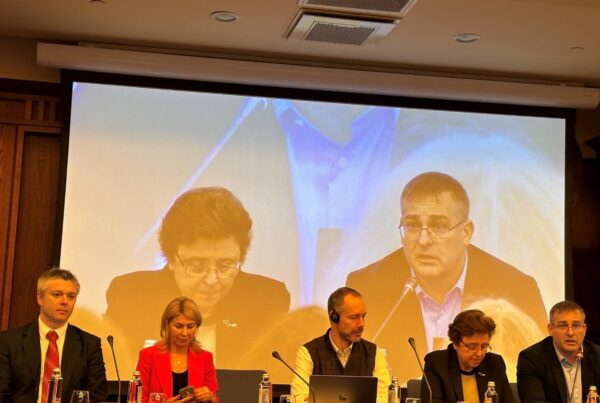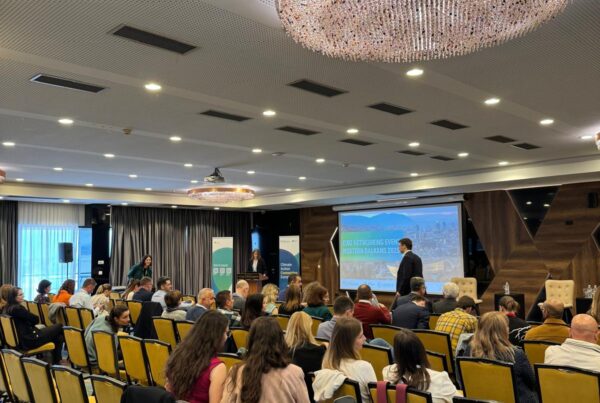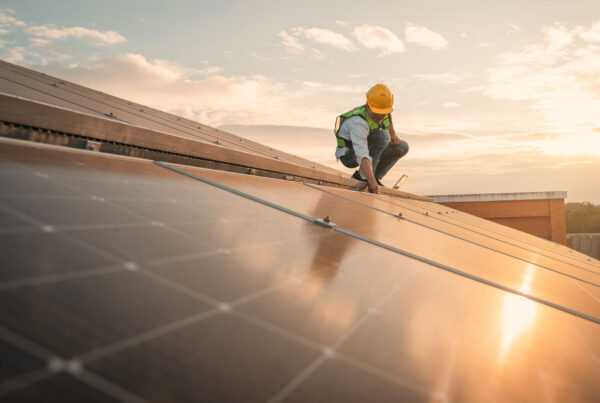On Tuesday, December 10, about 60 participants joined the Addressing Inefficiencies in Public Building Renovations: Challenges, opportunities and solutions for Central and Eastern Europe Online Conference.
This was the second in a series of six training and advisory meetings, organised by Polish Network “Energie Cités”, with the purpose of supporting municipalities in the energy transition process.
The conference was carried out as part of the project OUR-CEE: Overcoming Underperforming Renovations in Central and Eastern Europe.
The conference brought together an international group of participants — local government officials and sustainability specialists representing Poland, Romania, Bulgaria, Hungary, and Croatia. The opening presentation was given by Luciana Miu, Head of Clean Economy at Energy Policy Group (EPG), who talked about the challenges in carrying out effective renovations of buildings in Central and Eastern Europe, as identified by the OUR-CEE project.
She pointed out that countries in Central and Eastern Europe face similar difficulties in building renovation. Among the common obstacles, she cited obtaining financing for costly investments, insufficient knowledge and skills resources, lack of awareness of the need to increase energy efficiency in public buildings and poor coordination of renovation efforts.
However, she offered a clear strategy to address these issues. She emphasized the necessity of implementing effective regulations and financial instruments, establishing comprehensive databases and monitoring systems for renovation activities, as well as fostering capacity building and knowledge sharing.
Complementing Luciana Miu’s speech, was a presentation by Alexandru Coman, the Energy Specialist at Energy Efficiency and Renewable Energy Agency Ploiesti — Prahova.
Alexandru presented experiences from Romania gained through the SURF project, which supports municipalities in overcoming barriers to energy-efficient, cost-effective renovation of public buildings.
He emphasised the importance of using environmentally friendly materials and techniques, as greenhouse gas emissions are generated not only during the exploitation phase of the building, but also at the time of construction, demolition, or production of needed components.
Furthermore, he brought up the need to consider thermal upgrading through the lens of a closed-loop economy, and presented the tools and solutions developed as part of the SURF project.
One of the conclusions of Alexandru’s presentation is that local governments can (for example, by supporting and carrying out effective thermal upgrades) be a decisive force in creating a sustainable future.
The conference also featured examples from Poland. Michal Gruszczynski, a member of the Energy Management Team of the Bydgoszcz City Hall, talked about the complicated, demanding and time-consuming renovation of Mill Island in his city, which was a great success and brought significant results.
The investment included providing convenient access to the island with new pedestrian bridges, building a complex of park pools, renovating the building in order to create a Labour and Entrepreneurship Centre, and renovating a series of historic buildings.
Thanks to these measures, Mill Island has become a hub for cultural events and community gatherings, as well as a centre for entrepreneurship and tourism development.
The final presentation of the conference, delivered by Janusz Kahl, president of the South Poland Cleantech Cluster, focused on the concept of One-Stop-Shops (OSS).
One-Stop-Shops are platforms through which an investor interested in carrying out a building renovation can obtain comprehensive knowledge about needed measures and acquire contacts to reliable contractors, all of which enable easy planning and execution of the work.
Janusz Kahl talked about OSS krk HubRenovation, the first and so far, the only One-Stop-Shop operating in Poland, the advantages of such a solution and the important role that thermal modernisation of buildings plays in the pursuit of climate neutrality.
One of the tools proposed by the EU to help carry out the huge number of renovations needed is OSS.
By simplifying the investment process and being able to obtain information on proven contractors, OSS are expected to encourage those who are overwhelmed by the complexity of organising much-needed renovations.
Two panel discussions were held during the conference, during which speakers answered questions from participants and discussed topics of greatest interest or concern. The entire event, which was held partly in English and partly in Polish, was simultaneously translated by live interpreters, so that participants both from Poland and from outside the country could listen to all presentations and discussions without difficulty.
Presentations:
1. Overcoming underperforming renovations in the CEE region. Challenges and recommendations.
Luciana Miu, Head of Clean Economy, Energy Policy Group
2. Sustainable Building Renovation – Forming the Future (SURF)
Alexandru Coman, Energy Specialist at Energy Efficiency and Renewable Energy Agency Ploiesti – Prahova.
3. Large-scale public building renovation projects and innovative monitoring systems in Bydgoszczh)
Michał Gruszczyński, Energy Management Team of the Bydgoszcz City Hall
4. OSS krk HubRenovation. A one-stop shop for services and advice on the processes of thermal modernization and renovation of buildings, offering a full range of services in one place.
Janusz Kahl, President of the Board of Directors of South Poland Cleantech Cluster non-profit
